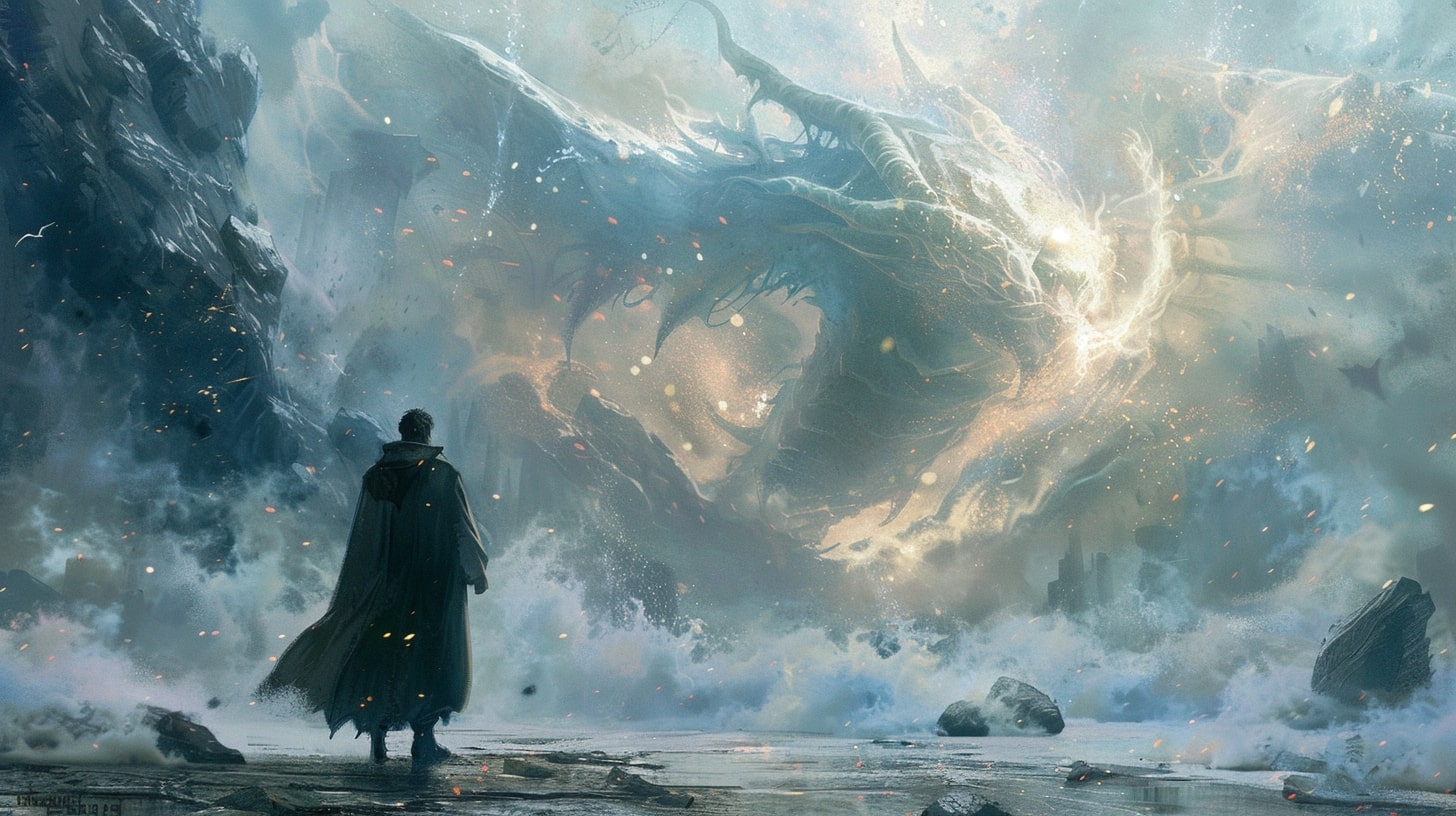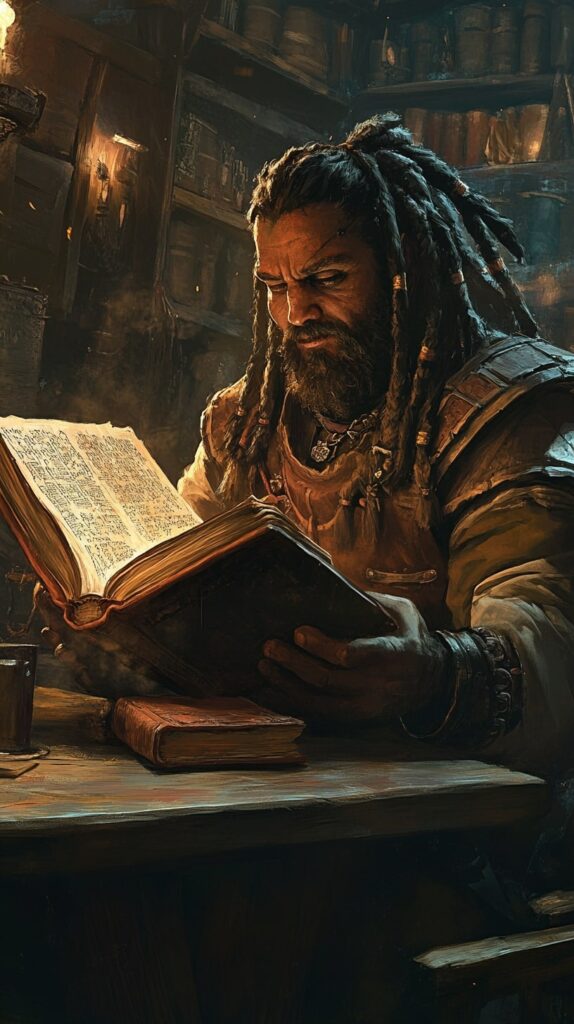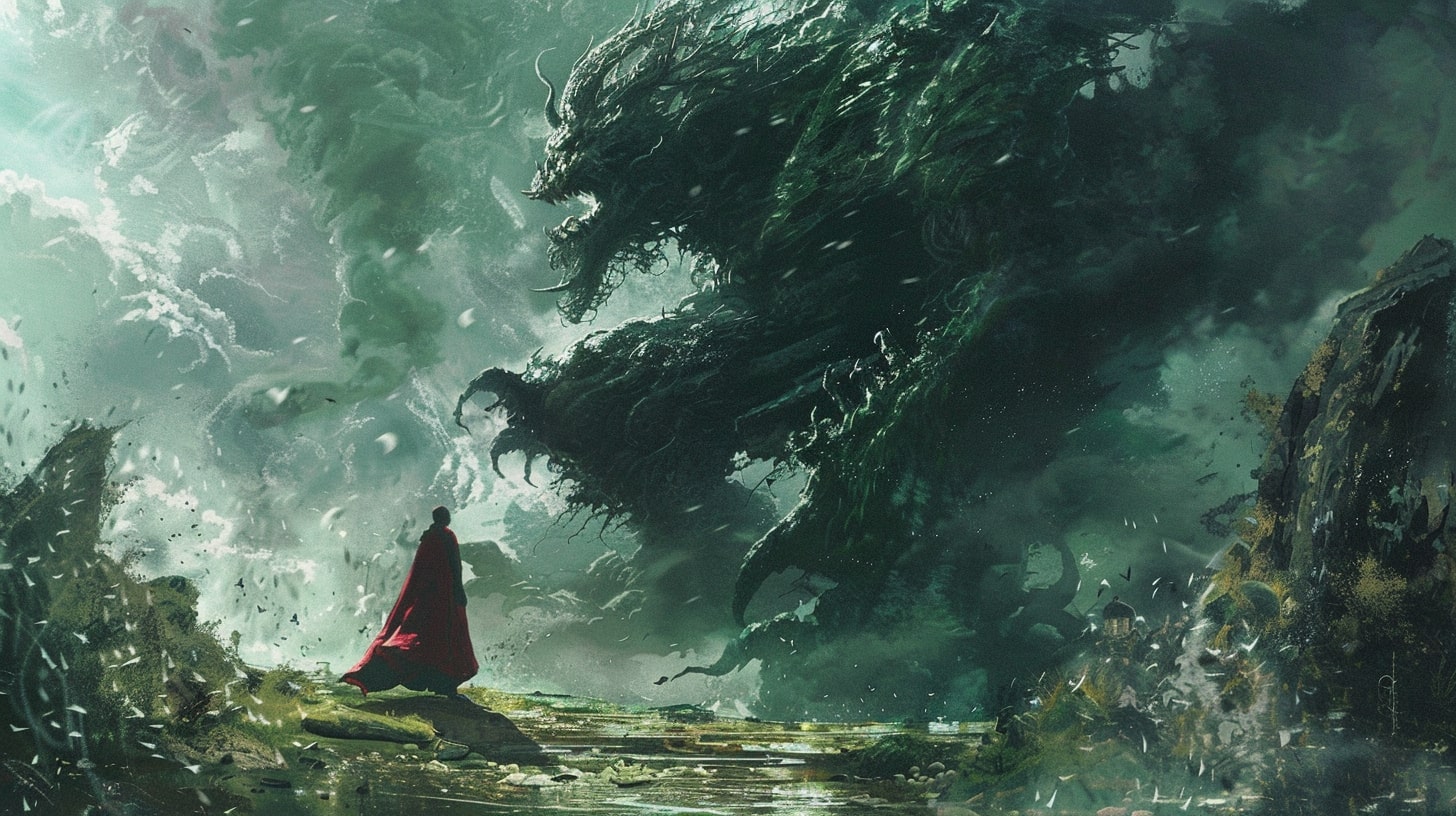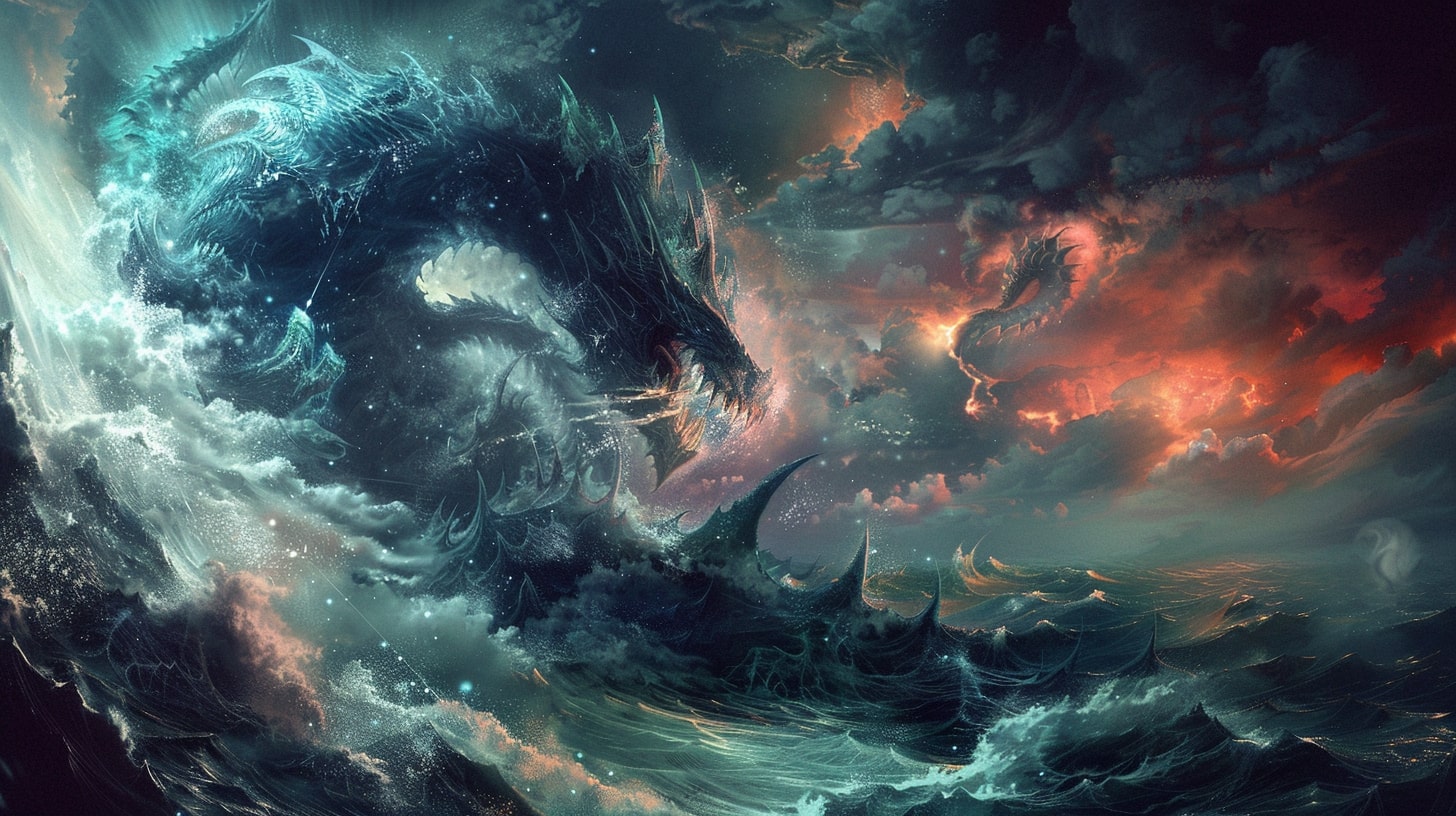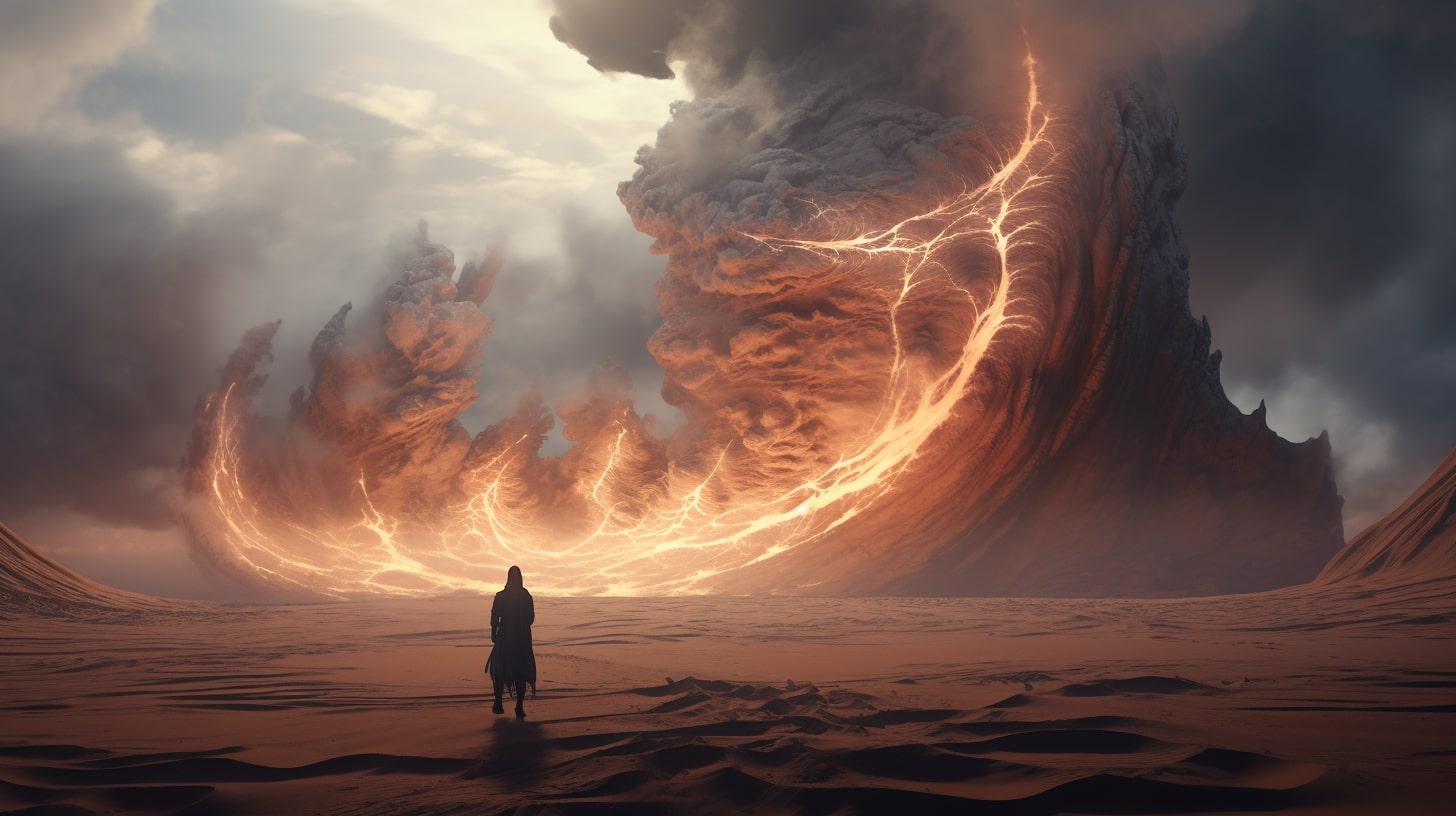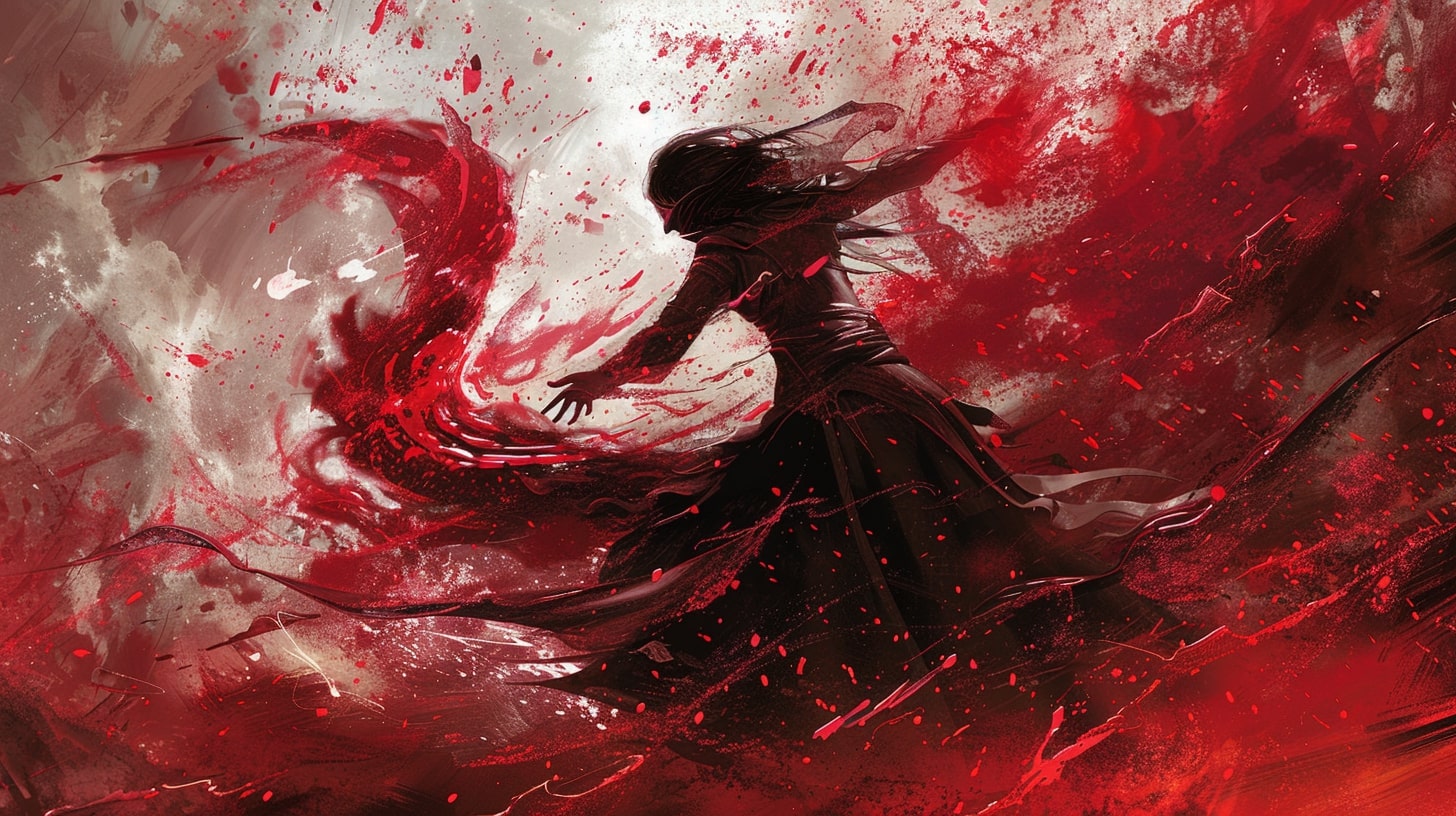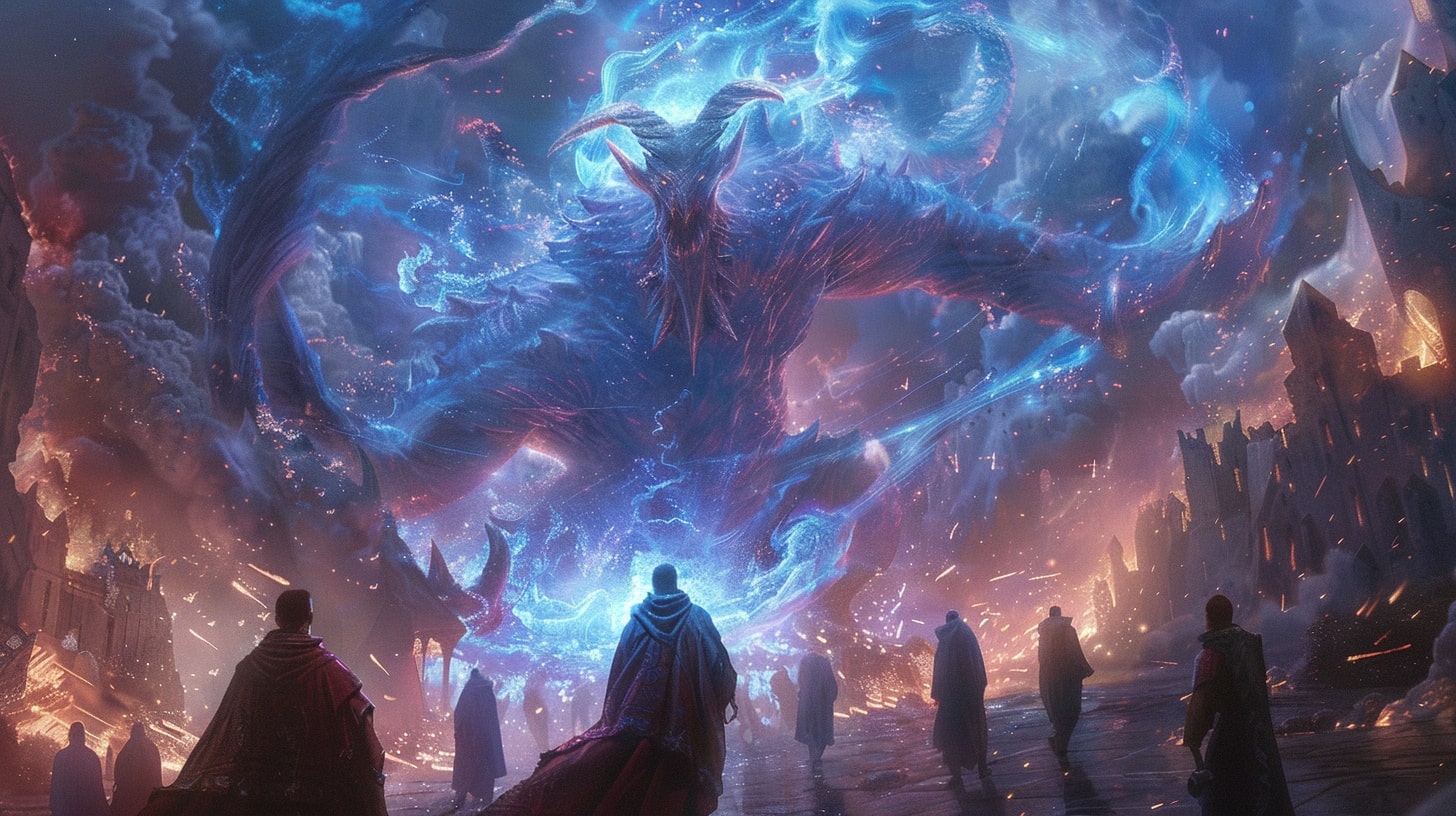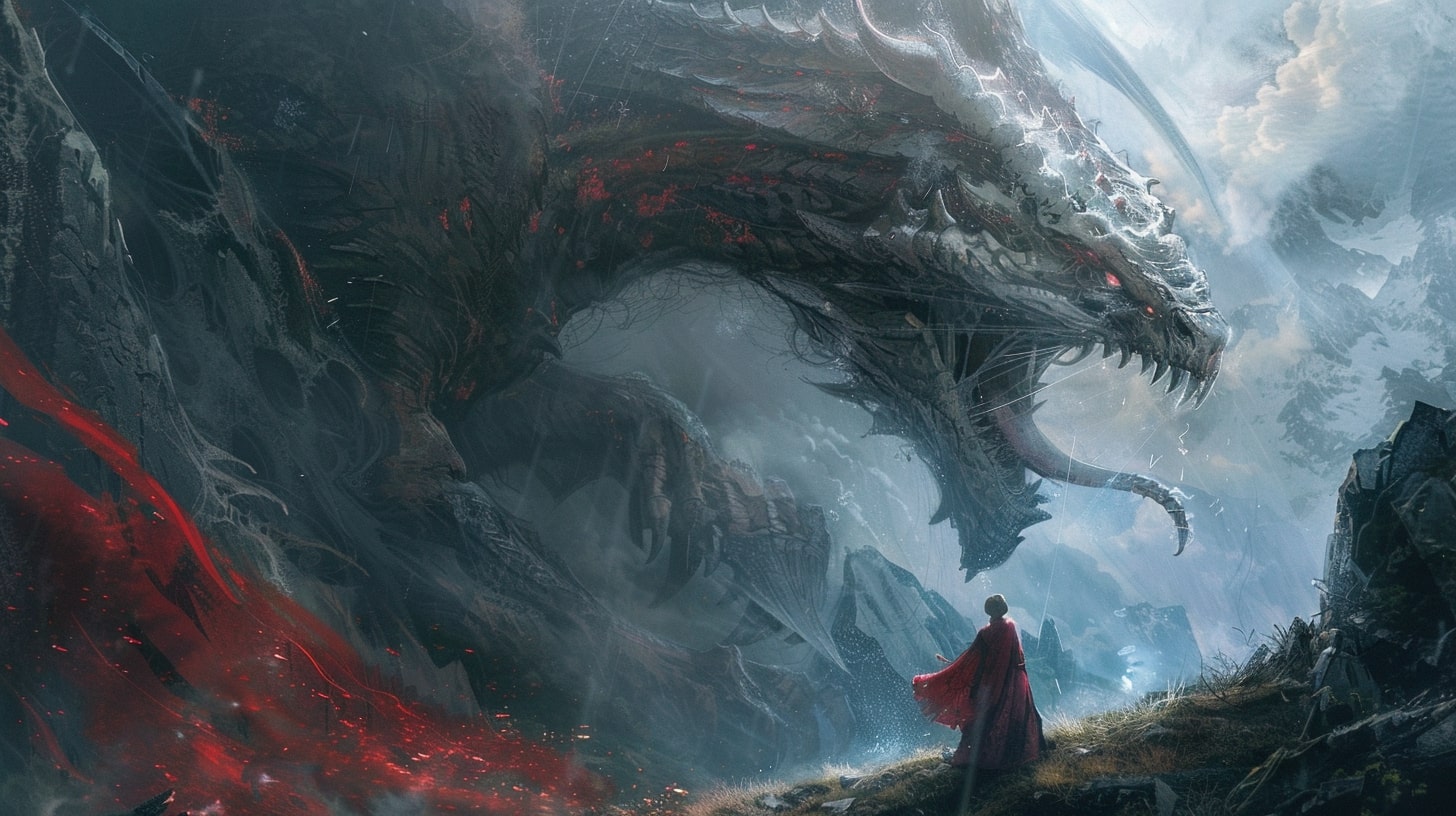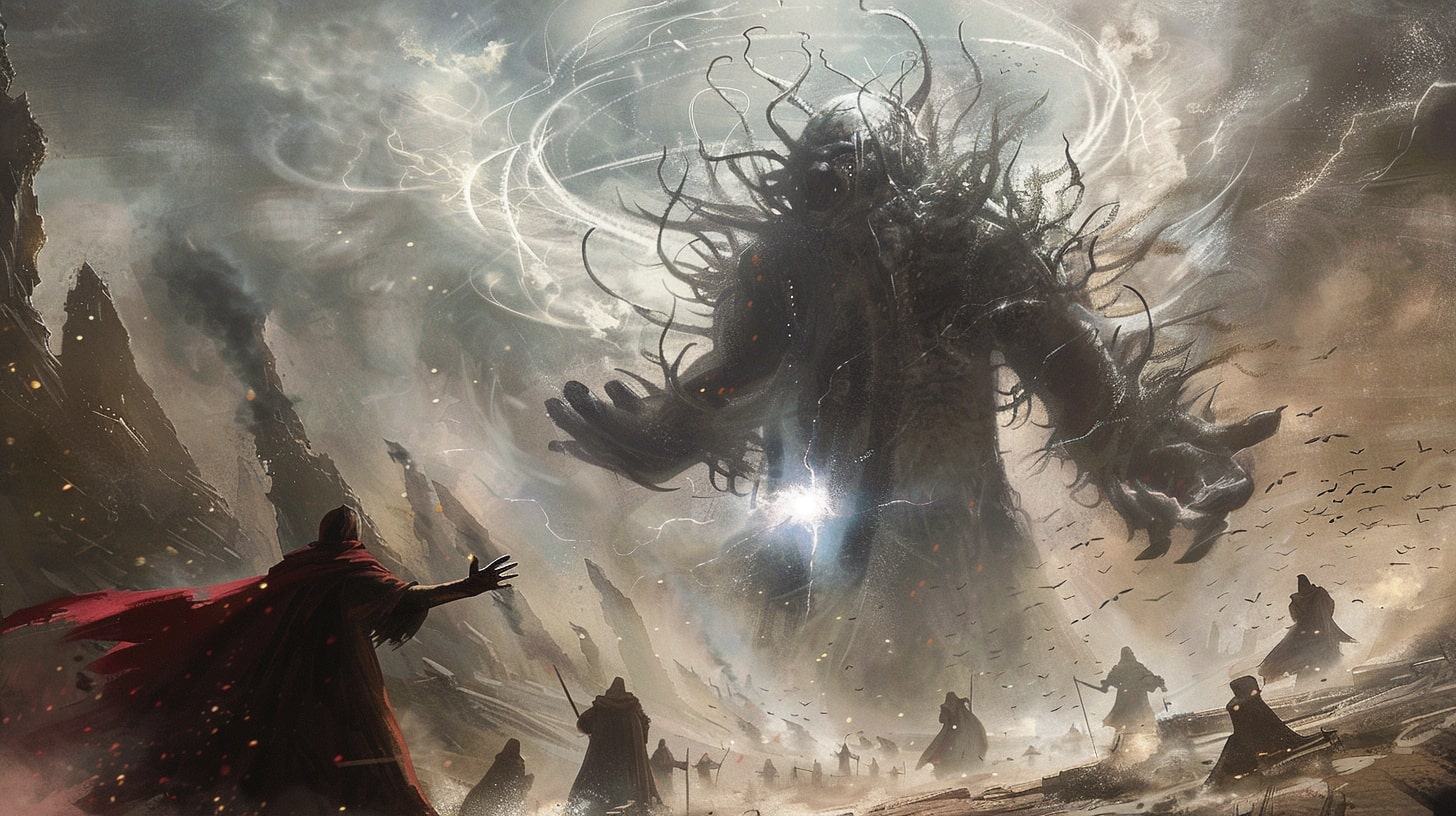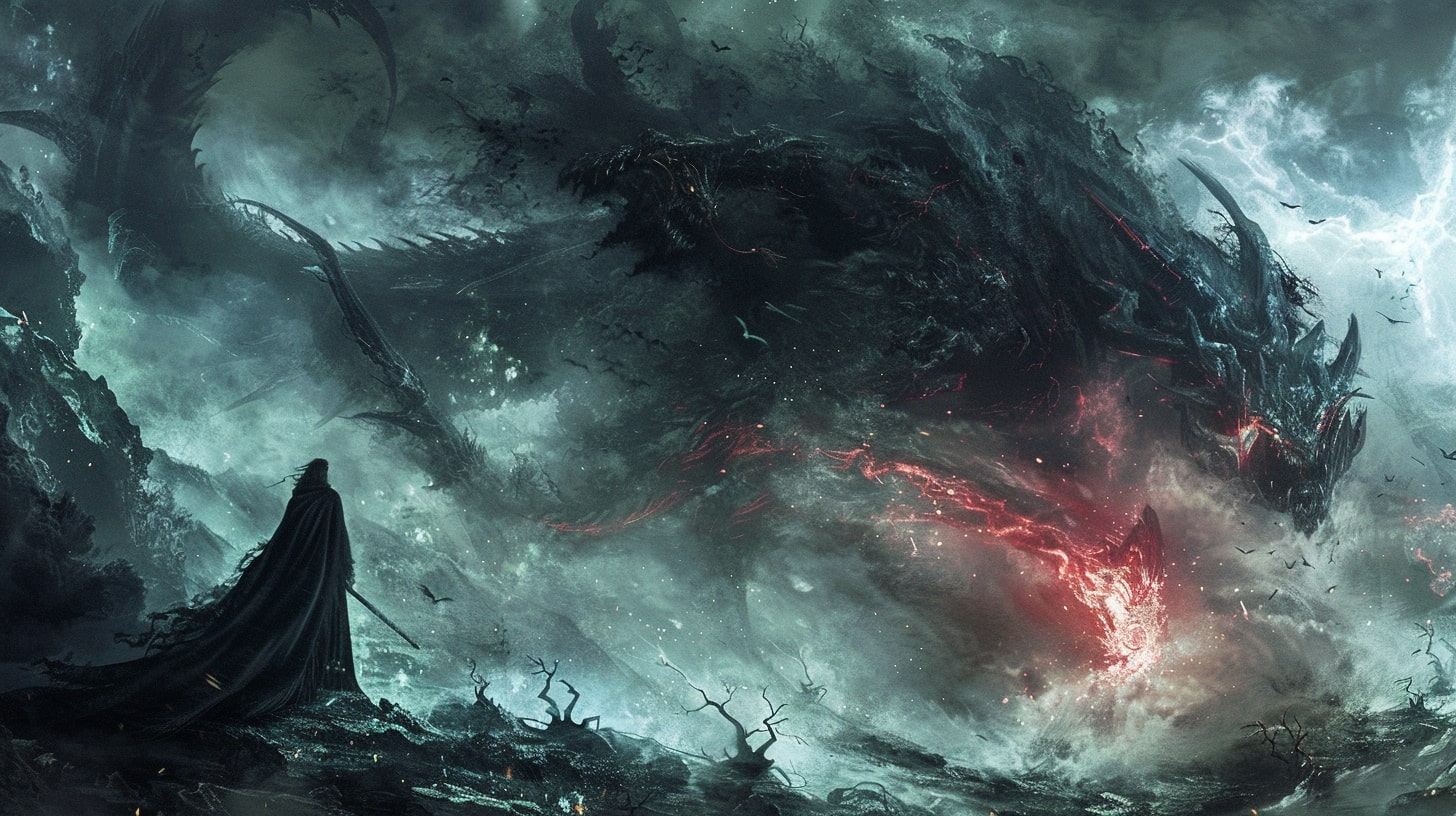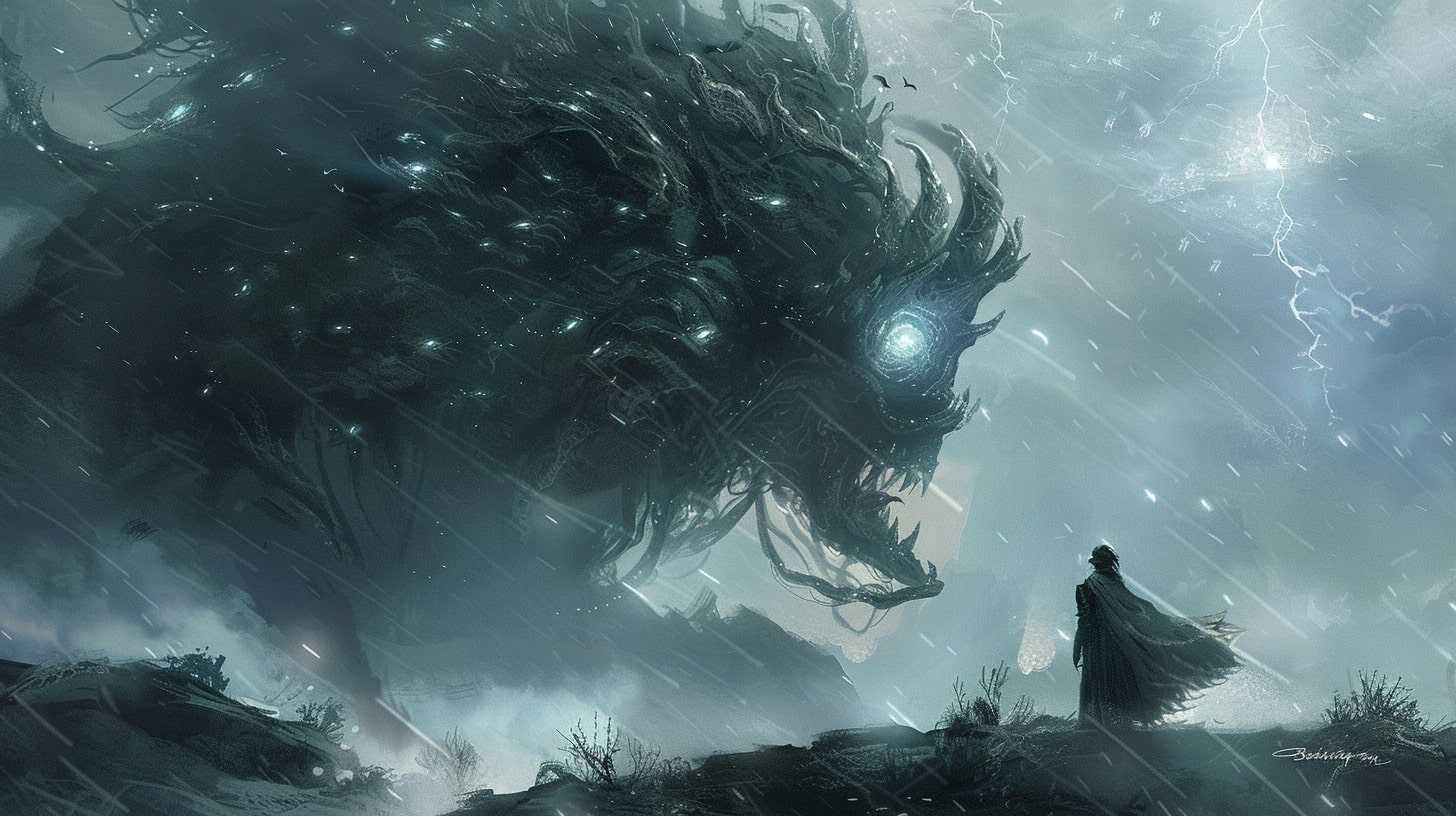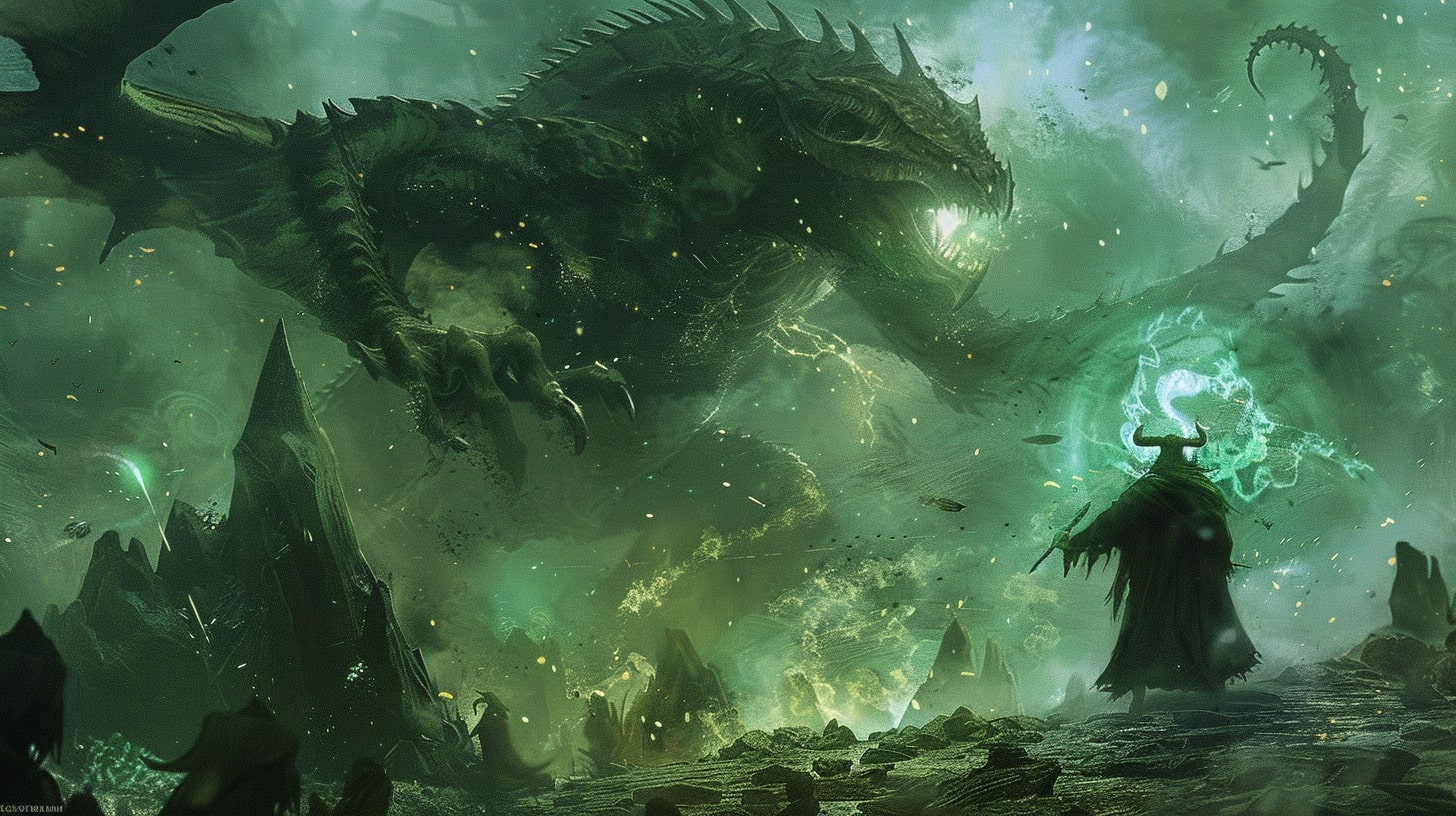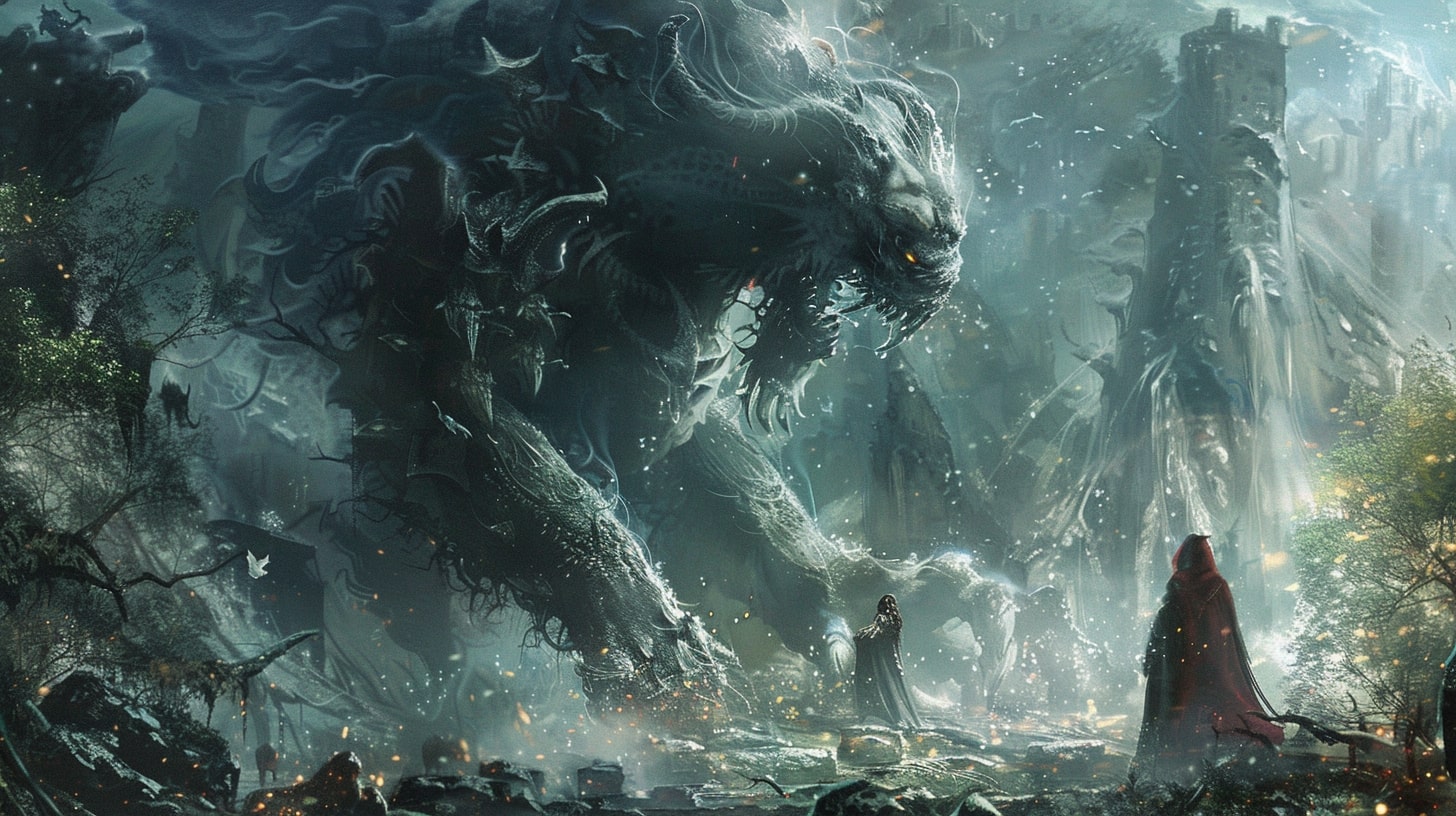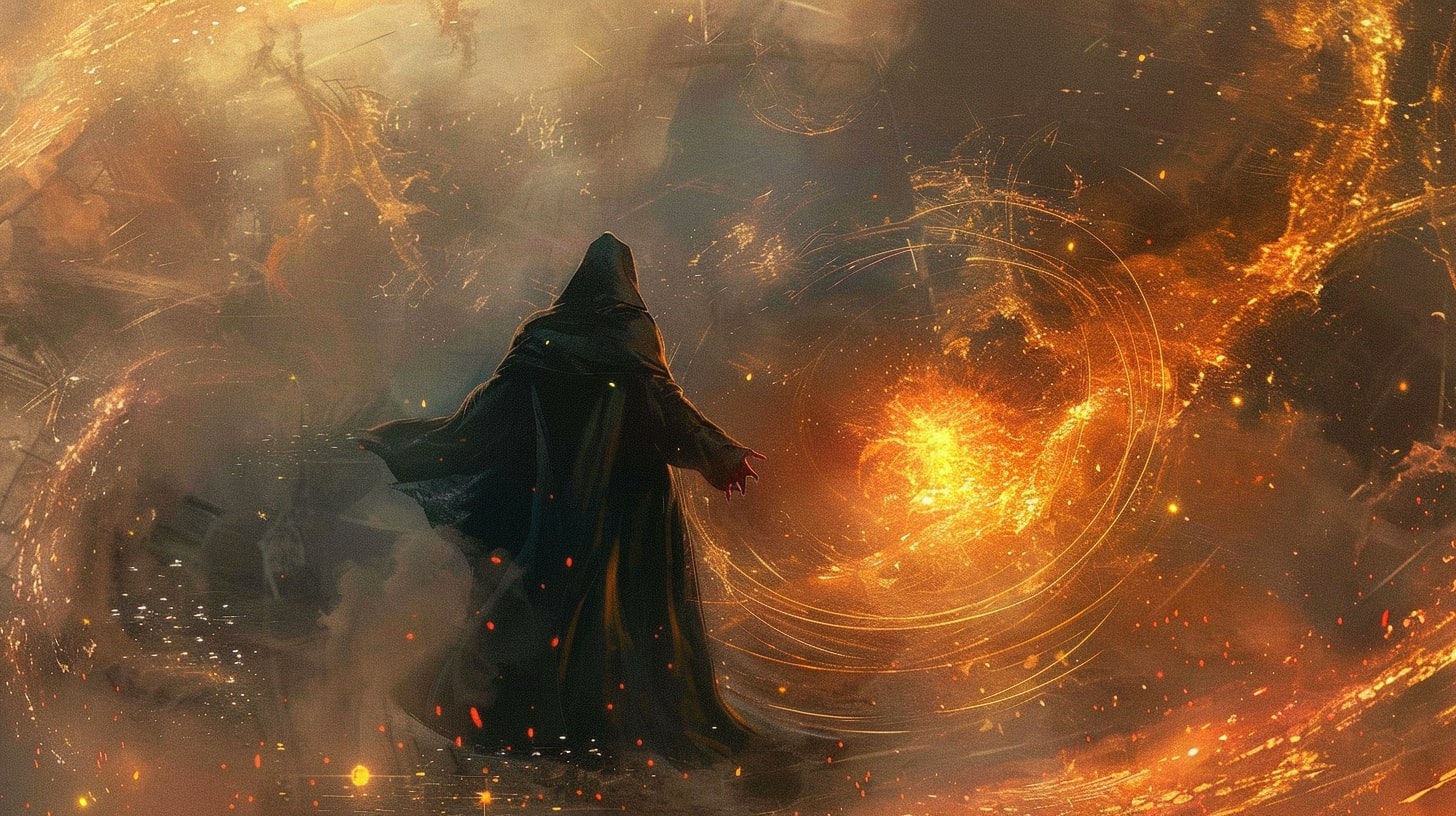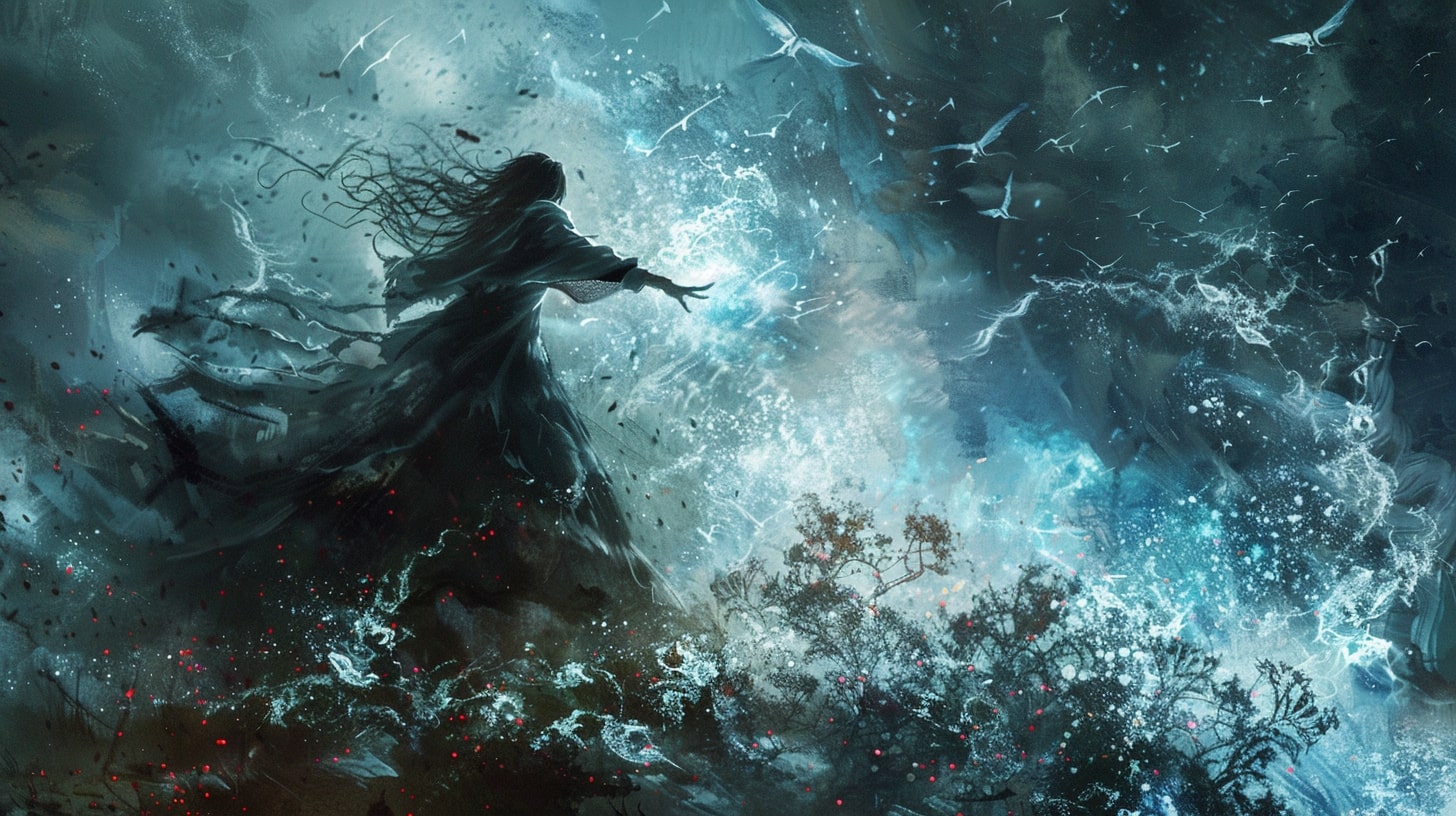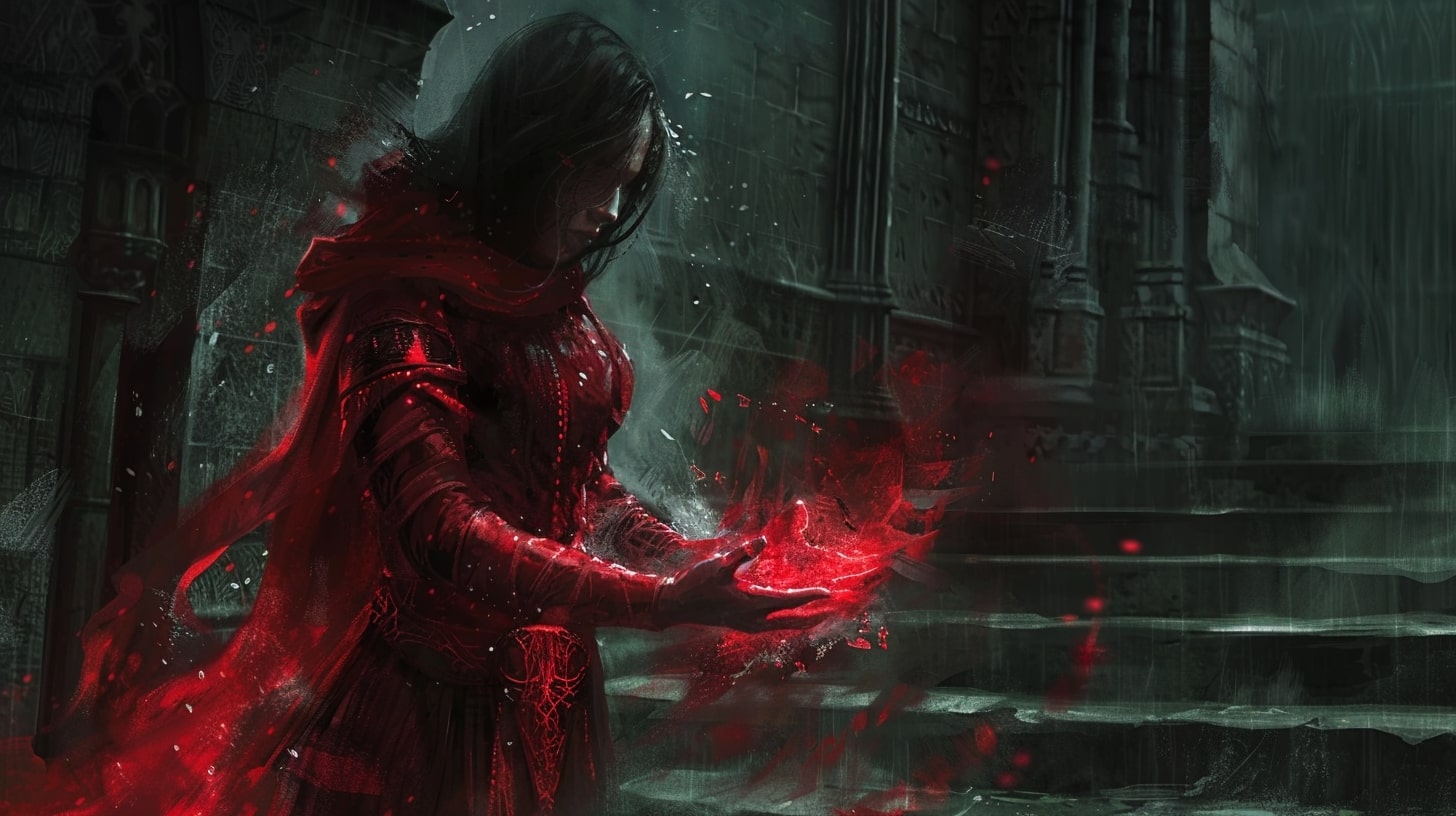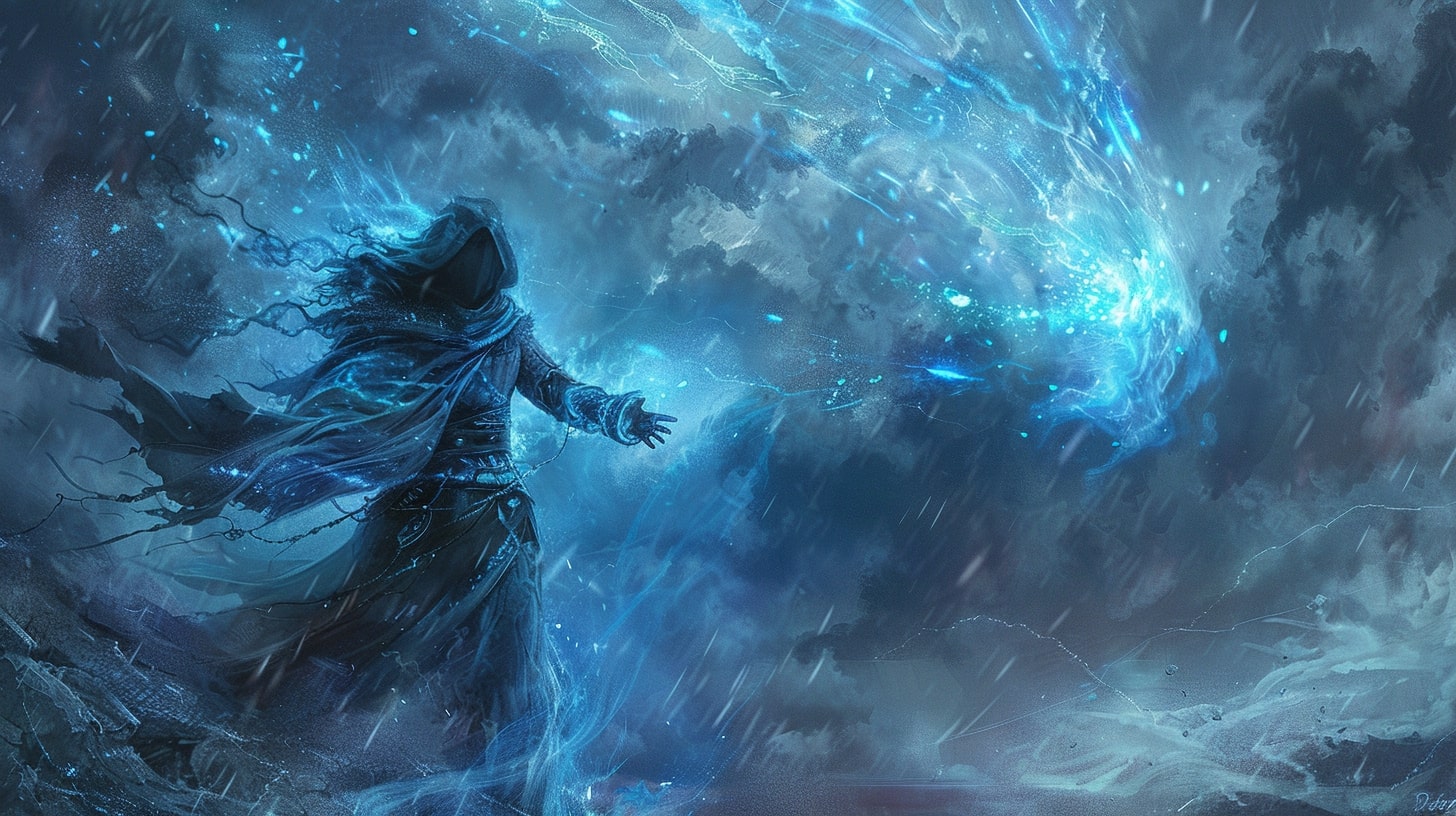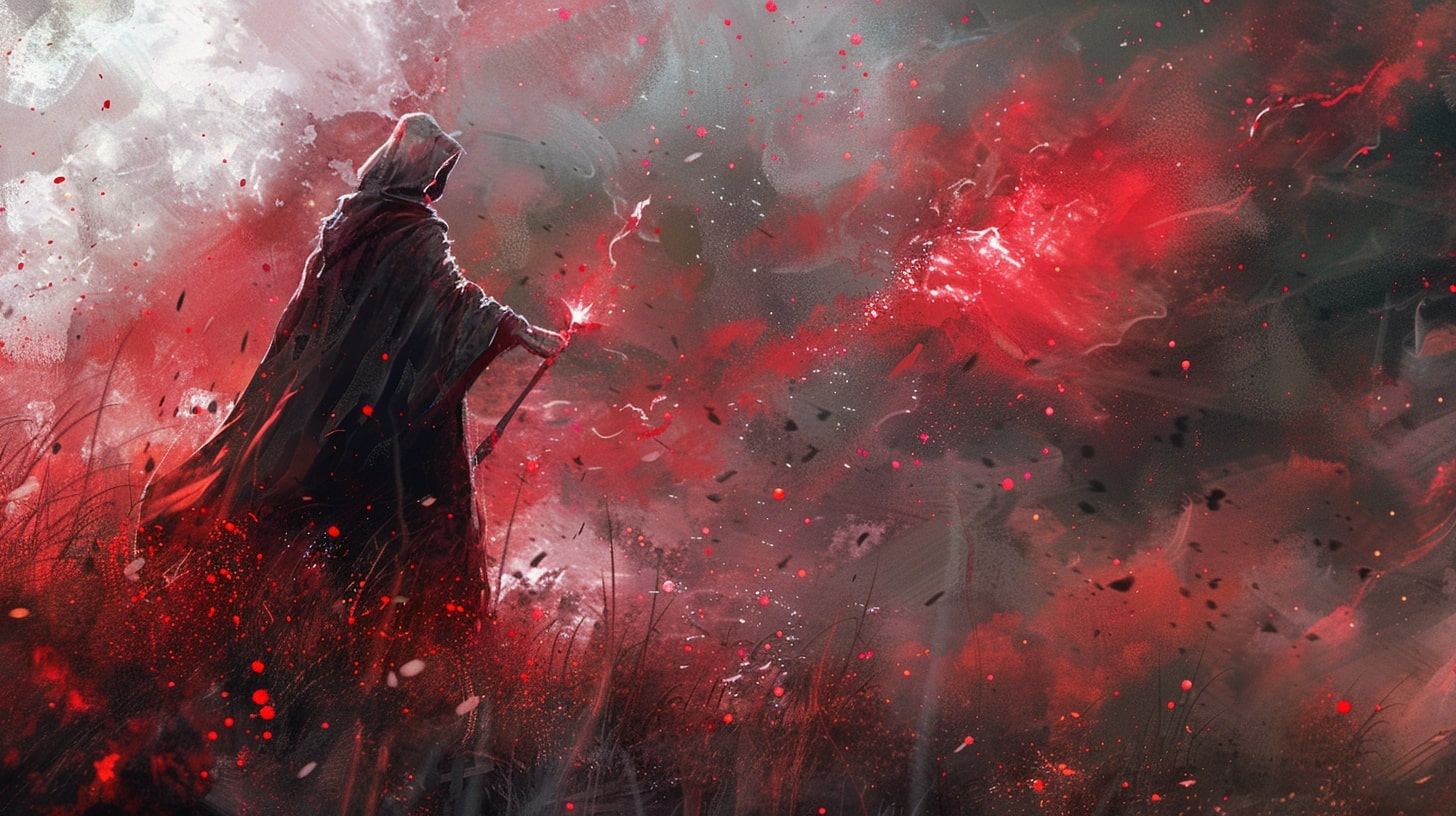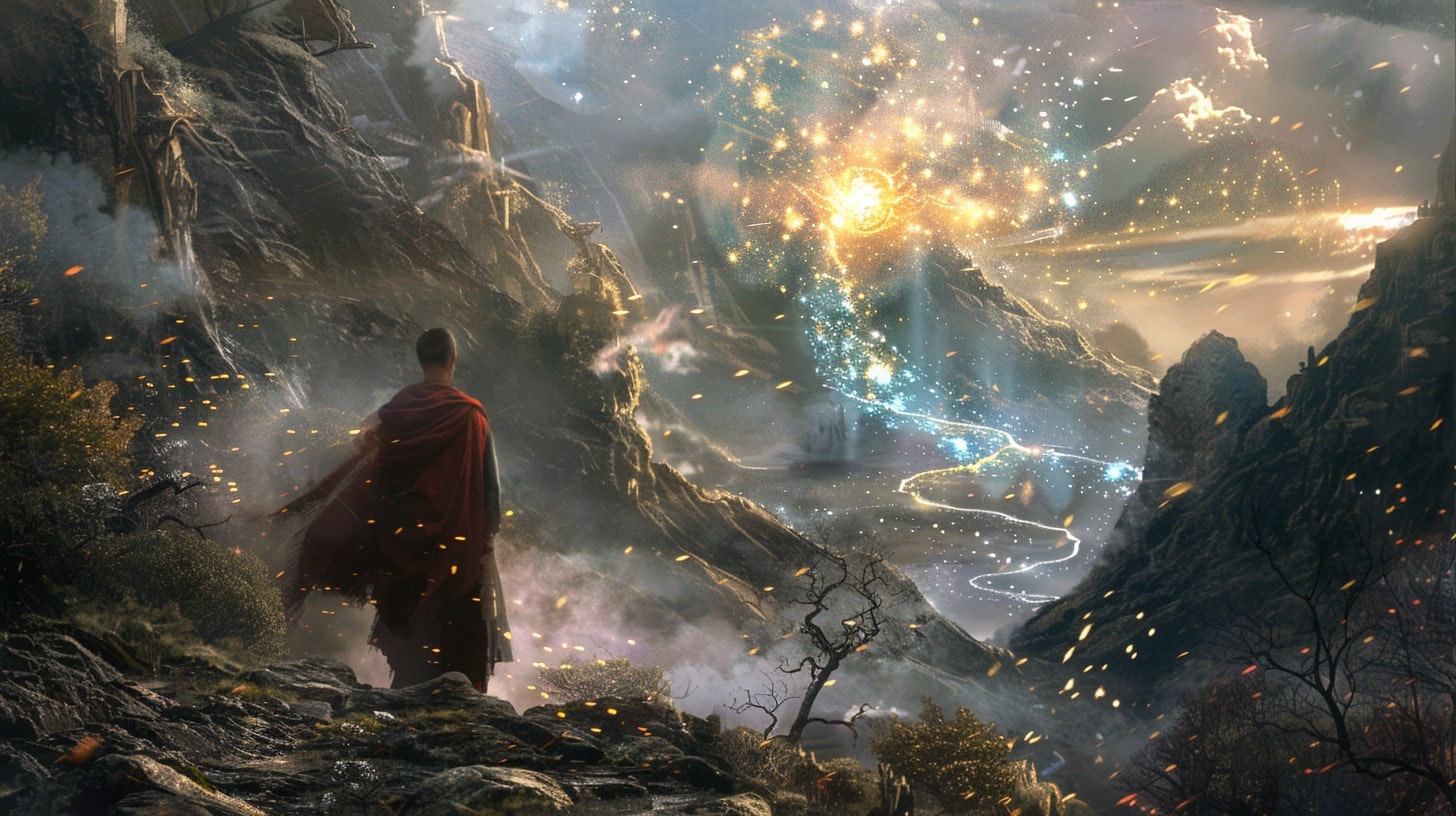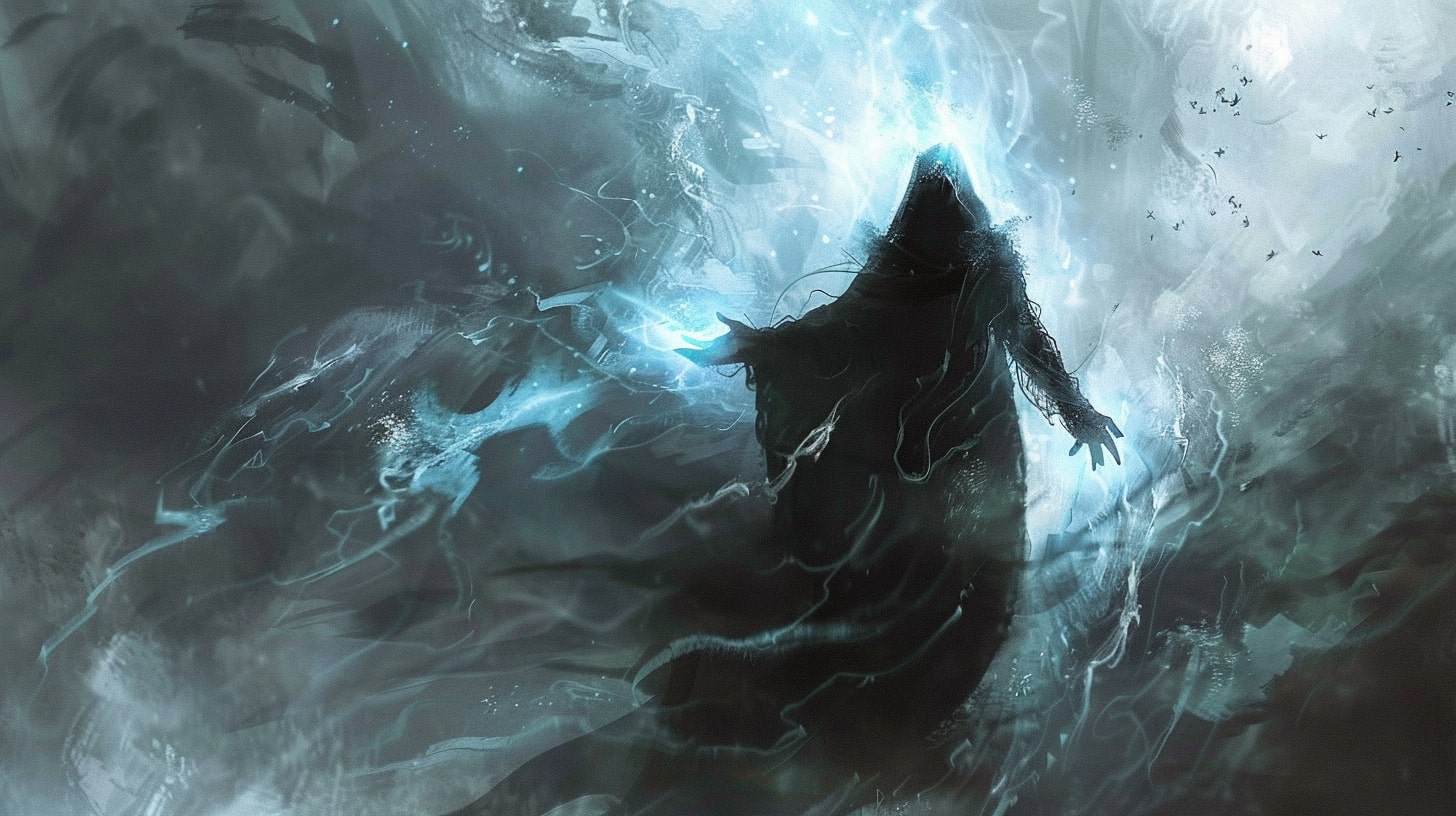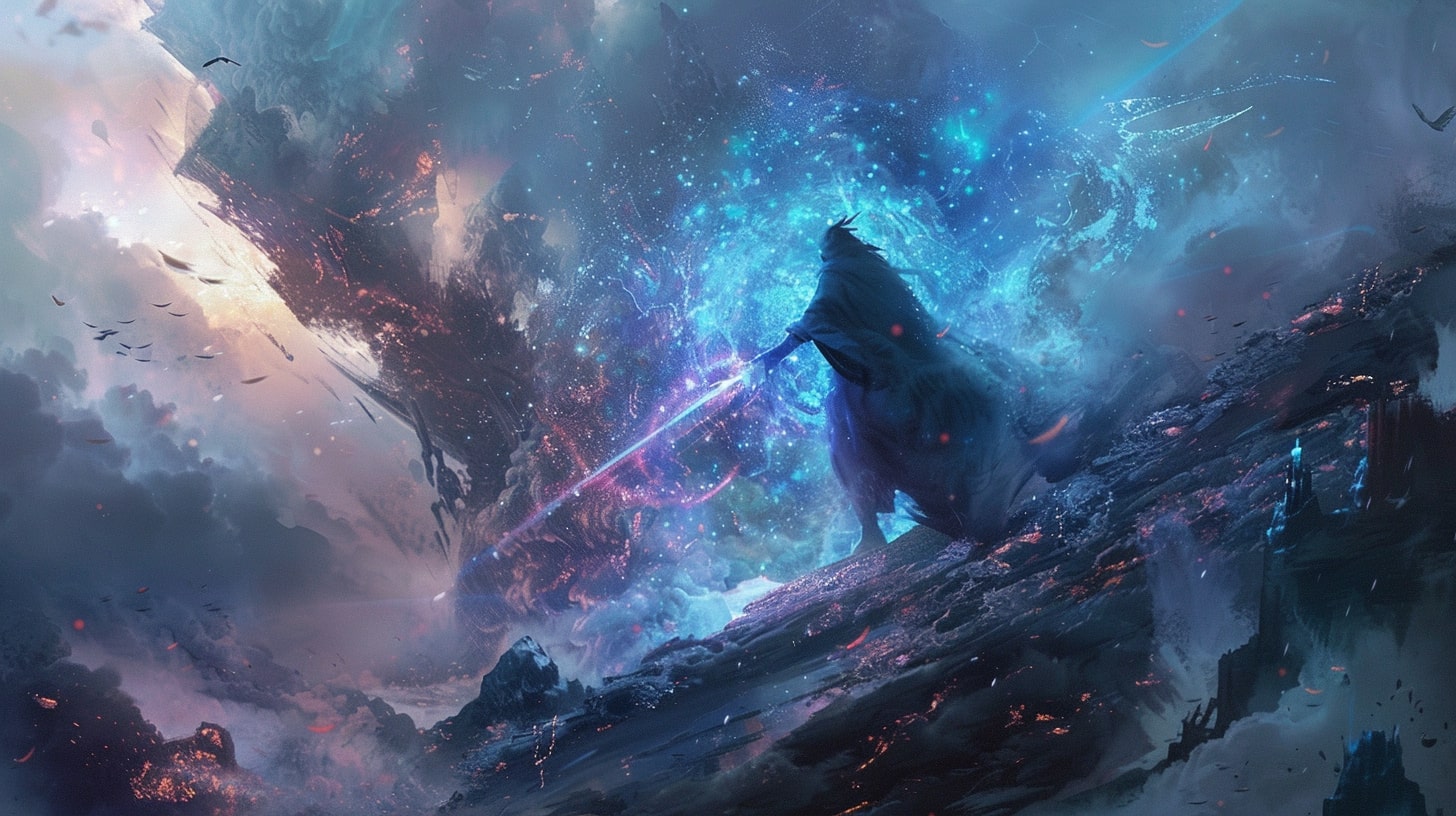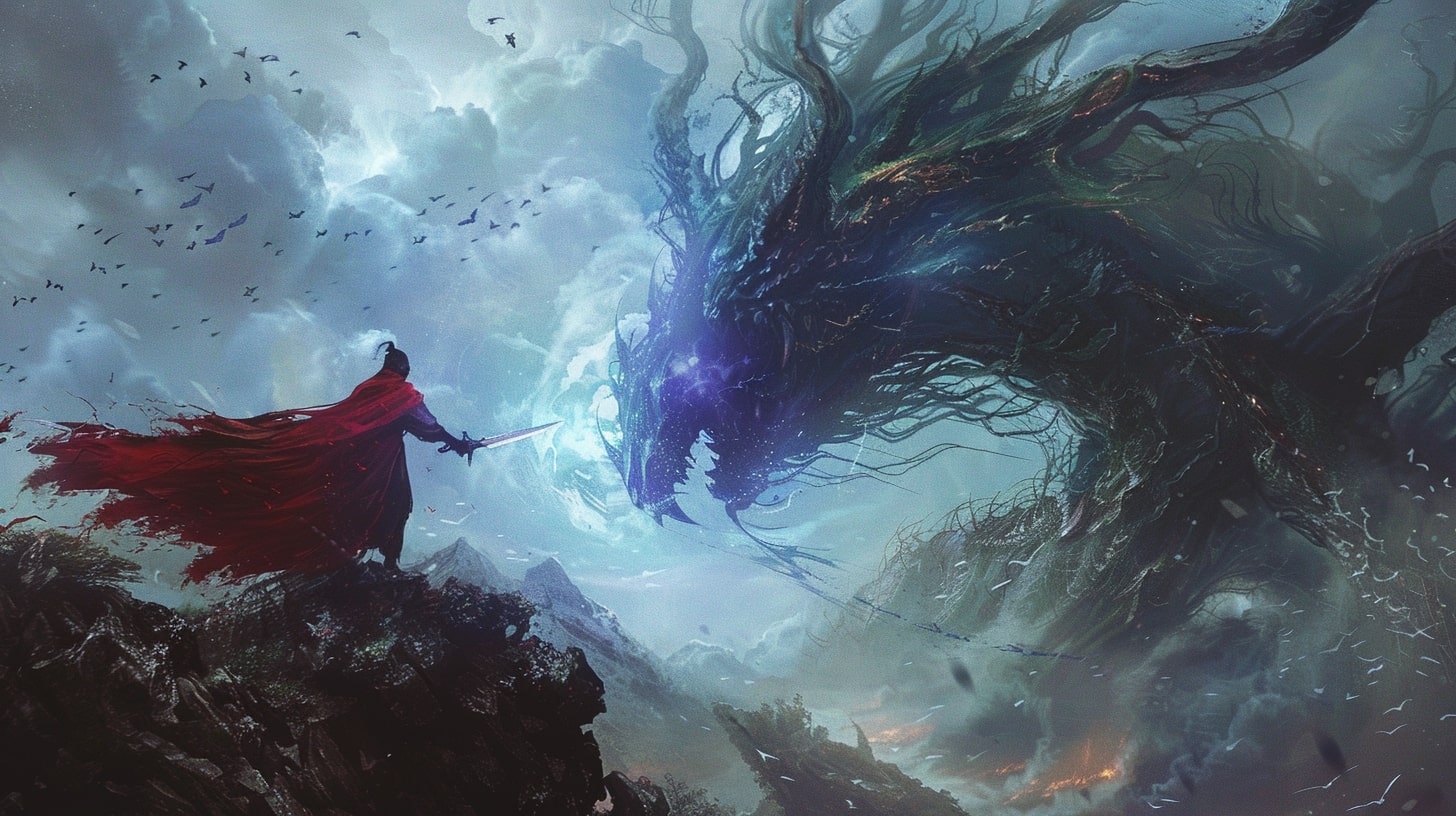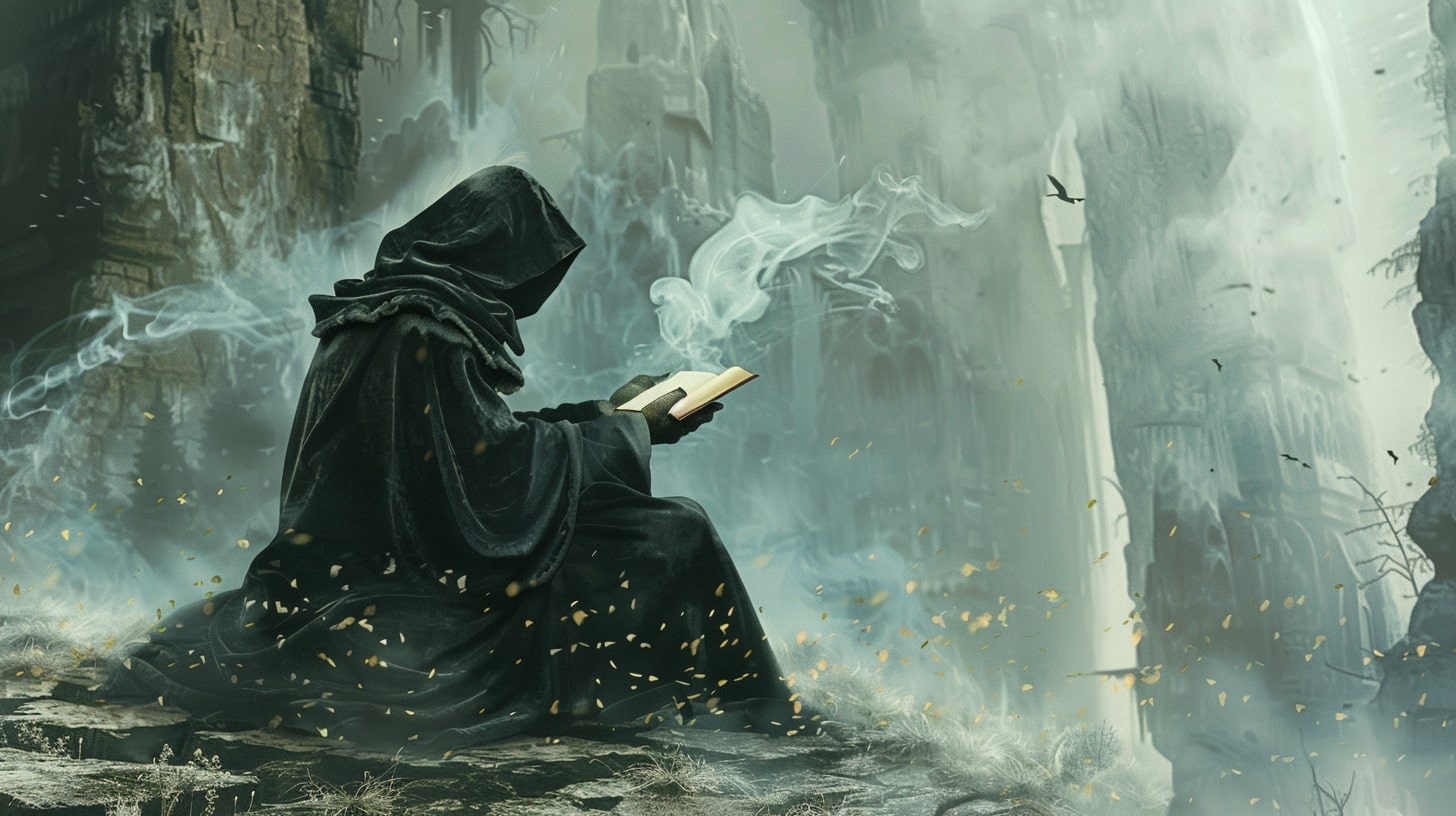The Power of Magic Systems
In the realm of fantasy writing, magic systems play a vital role in shaping captivating and immersive worlds. As a fantasy writer, you have the power to create intricate and unique systems of magic that captivate readers and enhance the overall storytelling experience.
Understanding why magic systems matter and how they can elevate your fantasy worlds is key to creating a compelling narrative. So if you’re ready to dive into magic system design and how to shape it in the way that you want then let’s dive in.
Why Magic Systems Matter in Fantasy Writing
Magic systems are the lifeblood of many fantasy stories. They introduce an element of wonder, excitement, and mystery that sets the genre apart from others.
Magic adds a sense of possibility and allows for extraordinary feats to occur within your fictional world. By incorporating a well-developed magic system, you can spark the imagination of your readers and transport them to a realm where anything is possible.
Magic systems also serve as a crucial storytelling tool. They can be used to drive the plot, create conflict, and shape the dynamics between characters and societies.
Magic can be a source of power, a means of communication, or a force that influences the very fabric of your world. By carefully crafting your magic system, you can add depth and richness to your narrative, making it more engaging and memorable.
How Effective Magic Systems Enhance Fantasy Worlds
Effective magic systems have the ability to enhance fantasy worlds in numerous ways. They bring a sense of authenticity and believability to your fictional setting, making it feel more tangible and real to readers.
By establishing clear rules and limitations for magic, you create a framework that adds a level of consistency and logic to your world. This helps readers understand how magic works and how it can be used within the story.
A well-designed magic system also offers opportunities for worldbuilding. It allows you to explore the unique source of magic in your world, whether it be elemental forces, divine influence, or other mystical origins. This source of magic can shape the lore, history, and culture of your world, providing depth and richness to its development.
Furthermore, magic users and their abilities can become integral to the fabric of your society. Considerations for how magic is integrated into social structures and its impact on individuals and communities can add layers of complexity to your world. Magic can create hierarchies, power struggles, or even be feared and persecuted by those who do not possess it.
By developing a balanced magic system, you ensure that the power of magic has consequences. Balancing the abilities and limitations of magic users helps prevent it from becoming an all-powerful tool that diminishes tension and conflict. It is through the careful balance of power and its consequences that you can create compelling narratives that keep readers on the edge of their seats.
In the following sections, we will delve deeper into the elements of magic system design, explore examples of successful magic systems in popular fantasy literature, and provide tips on how to create effective magic systems that will elevate your fantasy worlds to new heights. So let’s embark on this enchanting journey and unlock the secrets of effective magic system design together!

Elements of Magic System Design
To create an engaging and well-rounded magic system, several key elements need to be considered. These elements include clear rules and limitations, a unique source of magic, and the magic users and abilities within your fantasy world.
Clear Rules and Limitations
A well-designed magic system requires clearly defined rules and limitations to ensure consistency and balance. These rules establish the boundaries of what magic can and cannot do in your world. By establishing limitations, you can avoid making magic too powerful or allowing it to solve every problem effortlessly.
Consider creating a set of rules governing how magic is accessed, used, and controlled. For example, you might establish that magic requires the use of specific gestures, incantations, or the consumption of magical substances. Additionally, defining the limitations of magic, such as its energy cost, duration, or the need for certain conditions to be met, adds depth and realism to your magic system.
By setting clear rules and limitations, you can create tension, challenges, and conflicts within your story. This ensures that magic remains an integral part of the narrative without overshadowing other elements. For more inspiration on developing clear rules and limitations, check out our article on magic system rules.
Unique Source of Magic
A unique source of magic adds intrigue and distinctiveness to your fantasy world. This source could be anything from the elements, celestial bodies, mythical creatures, or even concepts like emotions or memories. By defining the origin of magic, you add depth to your world and provide a foundation for the way magic functions.
Consider the source of magic in your world and how it interacts with the magic users. Is it inherited through bloodlines, granted by deities, or drawn from the environment? A unique source of magic can also influence the types of spells or abilities available to magic users. For example, if magic is derived from nature, spells related to plants, weather, or animals might be prevalent.
By developing a unique source of magic, you create a sense of wonder and fascination for your readers. For more ideas, check out our article on unique magic systems that can inspire your creative process.
Magic Users and Abilities
The magic users in your world are essential components of your magic system. They bring the magic to life and interact with it in various ways. Consider the different types of magic users and their roles within society. Are they revered, feared, or shunned? How do they acquire and develop their magical abilities?
Diversify your magic users by creating different abilities that align with their personalities, backgrounds, or the source of magic. Some magic users might specialize in elemental magic, while others possess healing or telekinetic abilities. By incorporating a variety of abilities, you add depth to your characters and the overall magic system.
It’s important to establish the limitations and potential risks associated with using magic. This creates opportunities for character development and conflict within your story. For more ideas on magic users and abilities, check out our article on magic system components.
By carefully crafting the elements of your magic system, you can create a compelling and immersive fantasy world. Clear rules and limitations, a unique source of magic, and diverse magic users and abilities will help you construct a cohesive and captivating magic system that enhances your storytelling.
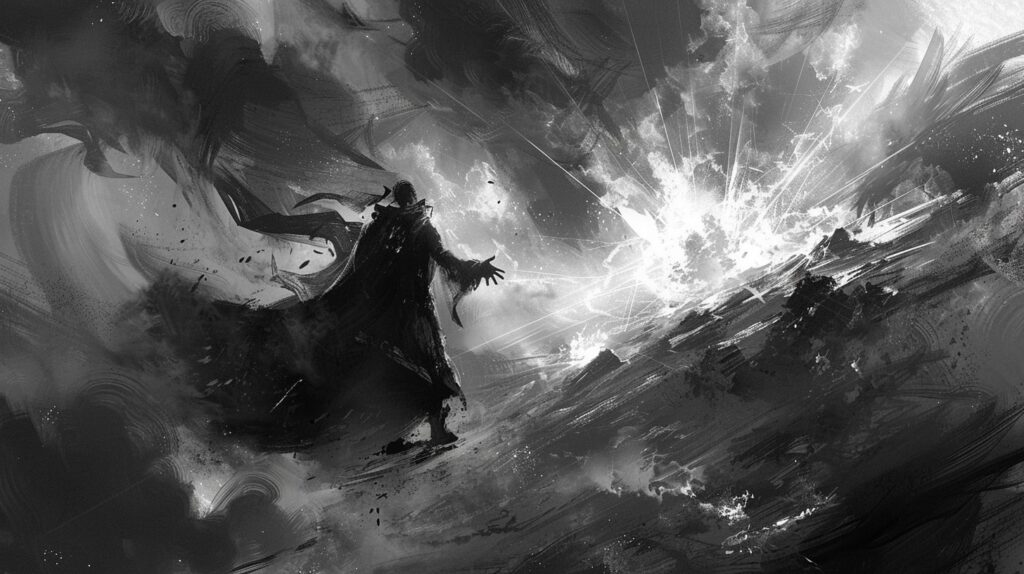
Creating a Balanced Magic System
To design an effective magic system, it’s crucial to ensure a balance between power and consequences, consider how magic fits into society, and explore its impact on conflict and plot development. By carefully addressing these aspects, you can create a well-rounded and engaging magical system for your fantasy world.
Balancing Power and Consequences
In any magic system, it’s important to establish clear rules and limitations. Determine the scope and extent of magical abilities, as well as their potential consequences. By defining these boundaries, you can prevent your magic system from becoming too overpowering or lacking in tension.
Consider the concept of equivalent exchange, where powerful magic comes at a cost. This can add depth to your magic system by introducing a balance between the benefits and drawbacks of using magic. For example, using powerful spells might drain the user’s energy or have unintended side effects.
Considerations for Magic in Society
When designing a magic system, it’s essential to consider how magic is integrated into the society within your fantasy world. Explore the role of magic users, their status, and their relationship with non-magic users. Think about the impact of magic on various social structures, such as politics, economy, and religion.
Magic can create power imbalances and social hierarchies. Consider whether magic users are revered or feared, and how their abilities affect their interactions with others. Delve into the consequences of magic on social dynamics and explore the conflicts that may arise due to these differences. For more insights on this topic, check out our article on magic system integration.
Magic’s Impact on Conflict and Plot
Magic can serve as a catalyst for conflict and a driving force for the plot in your fantasy world. Consider how the presence of magic affects the overall narrative and the journeys of your characters. Explore how magic can be used as a tool, weapon, or obstacle that influences the course of events.
Introduce conflicts arising from different factions or individuals seeking to control or exploit magic. Explore the ethical implications of magic usage and how characters navigate the moral dilemmas it presents. By incorporating magic into the conflicts and plot arcs of your story, you can create engaging and dynamic narratives.
By considering the balance between power and consequences, the societal implications of magic, and its impact on conflict and plot, you can create a well-developed and captivating magic system for your fantasy world.
Remember to explore these aspects in depth and ensure that your magic system is coherent and internally consistent. With a balanced magic system, you can elevate your fantasy world and captivate your readers.

Developing Magic Systems
As a fantasy writer, developing compelling magic systems is an essential part of creating immersive and captivating worlds. In this section, we will explore three crucial aspects of magic system development: worldbuilding and magic integration, magic system development process, and incorporating magic into the narrative.
Worldbuilding and Magic Integration
When developing a magic system, it’s important to consider how magic is integrated into your world. Ask yourself questions like: How does magic coexist with other elements of society? What role does magic play in the history and culture of your world? By weaving magic into the fabric of your worldbuilding, you create a cohesive and believable setting.
Ensure that the rules and limitations of your magic system align with the overall logic and mechanics of your world. This consistency helps maintain a sense of believability and prevents inconsistencies that might confuse or frustrate readers. For inspiration and ideas on different types of magic systems, check out our article on magic system ideas.
Magic System Development Process
Developing a magic system requires a systematic approach. Start by identifying the core components of your magic system, such as the source of magic, the types of magic users, and the specific abilities or spells available. Consider the limitations and consequences of magic to create balance and avoid making magic too powerful or convenient for your characters.
It’s important to define the rules and limitations that govern your magic system. This helps establish clear boundaries and prevent magic from becoming a deus ex machina plot device. For more guidance on establishing rules and limitations, refer to our article on magic system rules and magic system limitations.
Incorporating Magic into the Narrative
Once you have developed your magic system, it’s time to bring it to life within your narrative. Consider how magic impacts the characters, conflicts, and plot developments in your story. Are there certain characters who possess unique magical abilities? How does magic influence the dynamics between different factions or societies within your world?
When incorporating magic into the narrative, it’s important to strike a balance between showcasing its power and avoiding overuse. Use magic strategically to drive the plot forward, create tension, or solve conflicts. Remember that magic should serve the story, rather than overpower it. For inspiration on different types of magic systems and their narrative integration, explore our article on magic system examples.
By focusing on worldbuilding, following a structured development process, and thoughtfully incorporating magic into your narrative, you can create a magic system that enhances your fantasy world and captivates your readers.
Don’t be afraid to experiment with unique ideas and concepts to make your magic system truly stand out. Let your imagination soar as you elevate your fantasy worlds with the power of effective magic system design.
Examples of Successful Magic Systems
To gain inspiration for your own magic system design, let’s explore a few examples of successful magic systems in popular fantasy literature.
Harry Potter’s Wizarding World
Harry Potter by J.K. Rowling presents one of the most beloved magic systems in modern fantasy. Set in the Wizarding World, magic is an inherent part of the story, with wizards and witches possessing unique abilities. The magic in this world is structured and governed by rules, such as the need for wands and the incantations required to cast spells.
Rowling’s magic system also introduces different magical disciplines, such as charms, transfiguration, and potions. The integration of magic into everyday life and the rich lore surrounding the Wizarding World make it a captivating example of a well-developed magic system.
Brandon Sanderson’s Cosmere
Brandon Sanderson is renowned for his intricate and expansive magic systems. In his Cosmere universe, each book series presents a distinct magic system, often based on unique sources of power and governed by its own set of rules.
For example, in the Mistborn series, the magic system revolves around the ingestion and manipulation of different types of metals. Sanderson’s magic systems are renowned for their complexity and consistency, providing a sense of depth and realism to his fantasy worlds.
J.R.R. Tolkien’s Middle-earth
In The Lord of the Rings and The Hobbit, J.R.R. Tolkien crafted a magical world known as Middle-earth. While the magic in Tolkien’s works is more subtle compared to other fantasy series, it plays an essential role in the narrative. Magic is primarily depicted through the power of various beings, such as wizards and elves.
Tolkien’s magic system highlights the connection between magic and the world itself, with magic users drawing upon their understanding and relationship with nature. The integration of magic into the history, mythology, and lore of Middle-earth adds depth to the world-building and enhances the overall storytelling.
Studying successful magic systems like these can provide valuable insights and inspiration for your own world-building endeavors. Remember to consider factors such as clear rules and limitations, unique sources of magic, and the impact on society and conflict when designing your own magic system.
For more tips on effective magic system design, check out our article on magic system ideas. Let your imagination soar as you create a captivating and immersive world with a magic system that will enchant your readers.
Enhancing Your Fantasy Worlds
To truly captivate readers with your fantasy world, designing an effective magic system is key. Crafting a well-thought-out and immersive magical framework can elevate your storytelling and immerse readers in a world where the impossible becomes possible. Here are some tips for effective magic system design that will help you create a magical experience that inspires creativity and imagination.
Clear Rules and Limitations
Establishing clear rules and limitations within your magic system is crucial for maintaining consistency and avoiding plot inconsistencies. By defining what magic can and cannot do, you create a sense of believability and prevent magic from becoming a deus ex machina.
Consider the source of magic, its limitations, and the consequences of its use. This will provide a solid foundation for building conflict and tension in your story.
Inspiring Creativity and Imagination
Encourage creativity and imagination by infusing your magic system with unique and intriguing elements. Allow room for different types of magic, such as elemental magic, divine magic, nature-based magic, ritualistic magic, or even blood magic.
By incorporating a variety of magical concepts, you can add depth and diversity to your world. Explore different magic system ideas and types of magic systems to spark your imagination.
Balancing Power and Consequences
A well-balanced magic system ensures that power comes with consequences. Consider the balance between the abilities of magic users and their limitations. A powerful spell might require a sacrifice or have unintended side effects.
By establishing a sense of balance, you create opportunities for character growth and development, as well as tension and conflict. Learn more about creating balance in your magic system in our article on magic system balance.
Incorporating Magic into the Narrative
Integrate your magic system seamlessly into the narrative, allowing it to shape the world and influence the lives of your characters. Consider how magic affects society, politics, and the everyday lives of individuals. Explore its impact on conflicts and plot developments.
By exploring the implications of magic, you can create a more immersive and realistic world. Discover more about integrating magic into your narrative in our article on magic system integration.
Research and Inspiration
To create a unique and captivating magic system, draw inspiration from various sources. Research different mythologies, folklore, and historical beliefs surrounding magic. Consider how magic has been portrayed in other works of fantasy literature.
By expanding your knowledge and understanding of magic, you can create a more nuanced and engaging system. Discover more about finding inspiration for your magic system in our article on magic system inspiration.
By following these tips and infusing your magic system with creativity and imagination, you can enhance your fantasy world and engage readers on a magical journey. Remember to experiment, iterate, and refine your magic system to create a unique and captivating experience that will leave readers spellbound.
